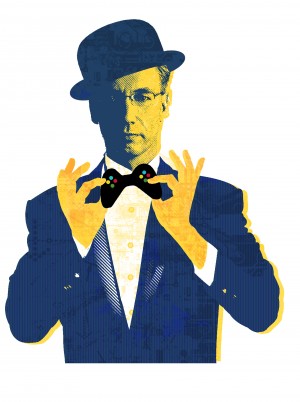‘Game Change’: PHD’s latest book looks at ‘gamification’ as future business model

‘‘Game Change’’, the latest book from global media and communications agency PHD, discusses how “gamification” can be harnessed and applied as a business model for the future.
Although gaming has an unfortunate capacity for attracting negative headlines, Game Change explores the mounting evidence and opinions from a number of commentators who argue that gaming can actually be a force for good, especially when applied to real life problems.
“Gamification” uses game thinking and mechanics to engage users into solving problems. In a business and marketing sense, it creates new ways to engage both employees and consumers. Businesses need to consider that 7 billion hours by 1 billion gamers is what’s up for grabs in the “Engagement Economy”.
Co-author and worldwide strategy and planning director at PHD, Mark Holden, says if businesses and marketers can apply even a fraction of the engagement seen in gaming, the payback will be incredibly significant. Gaming has the ability to create meaning and motivation relevant to the target market, whether internal or external, which results in engaged audiences and ultimately, increased revenue.
“It is not enough to expect people within any organisation to give the best part of their waking lives for money alone. People, especially the younger generation, are seeking more meaning from their working lives. And it is important that organisations start to take this on board. There’s a lot that can be learnt from the immersive and empowering experience that games provide. It is now becoming increasingly clear that, if employed correctly and not superficially, game mechanics can help to generate the levels of engagement required for this new working world.” says Holden.
Game Change looks at “gamification” in practice through successful examples, including Nike+, Guinness and Heineken and from sectors including finance, such as Mint.com.
PHD itself has implemented a “gamified” global operating system, Source – the largest enterprise gaming system with more than 2,500 staff in over 76 countries collaborating and playing on a leaderboard at work every day. It has been adopted quicker than ever anticipated, thanks to the game element.
Jane McGonigcal, Game Change foreword author, game designer and author of New York Times bestseller Reality is Broken, points out that innovative systems like Source empowers employees to gamefully tackle daily challenges that excite and interest them most, helping them to realise their strengths, which creates significant improvements in employee engagement and output.
Game Change is co-authored by PHD’s Mark Holden, Craig Atkinson, Malcolm Devoy, Frances Ralston-Good, Chris Stephenson, and writer Alasdair Reid.